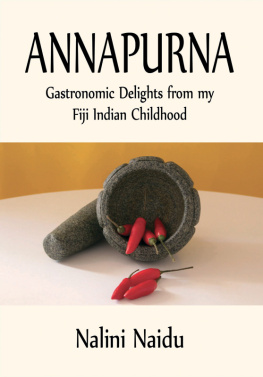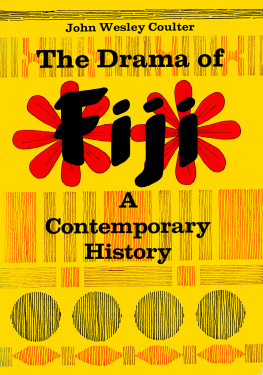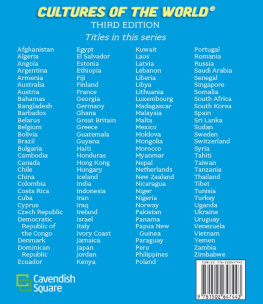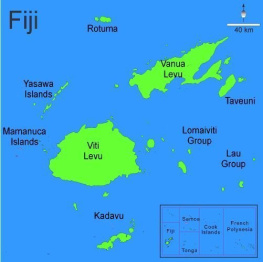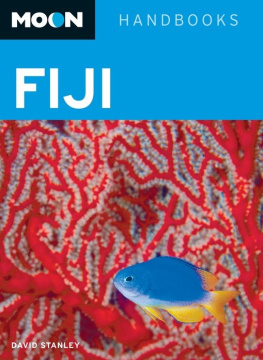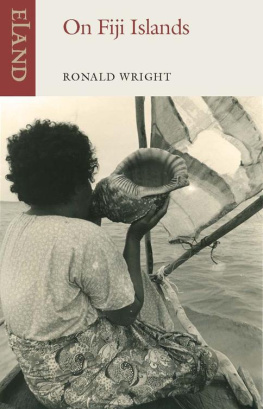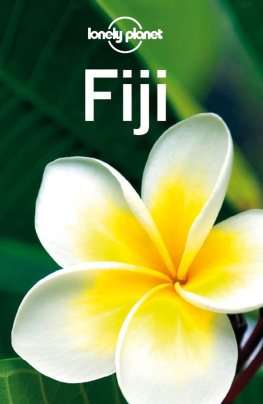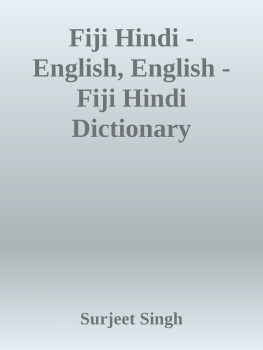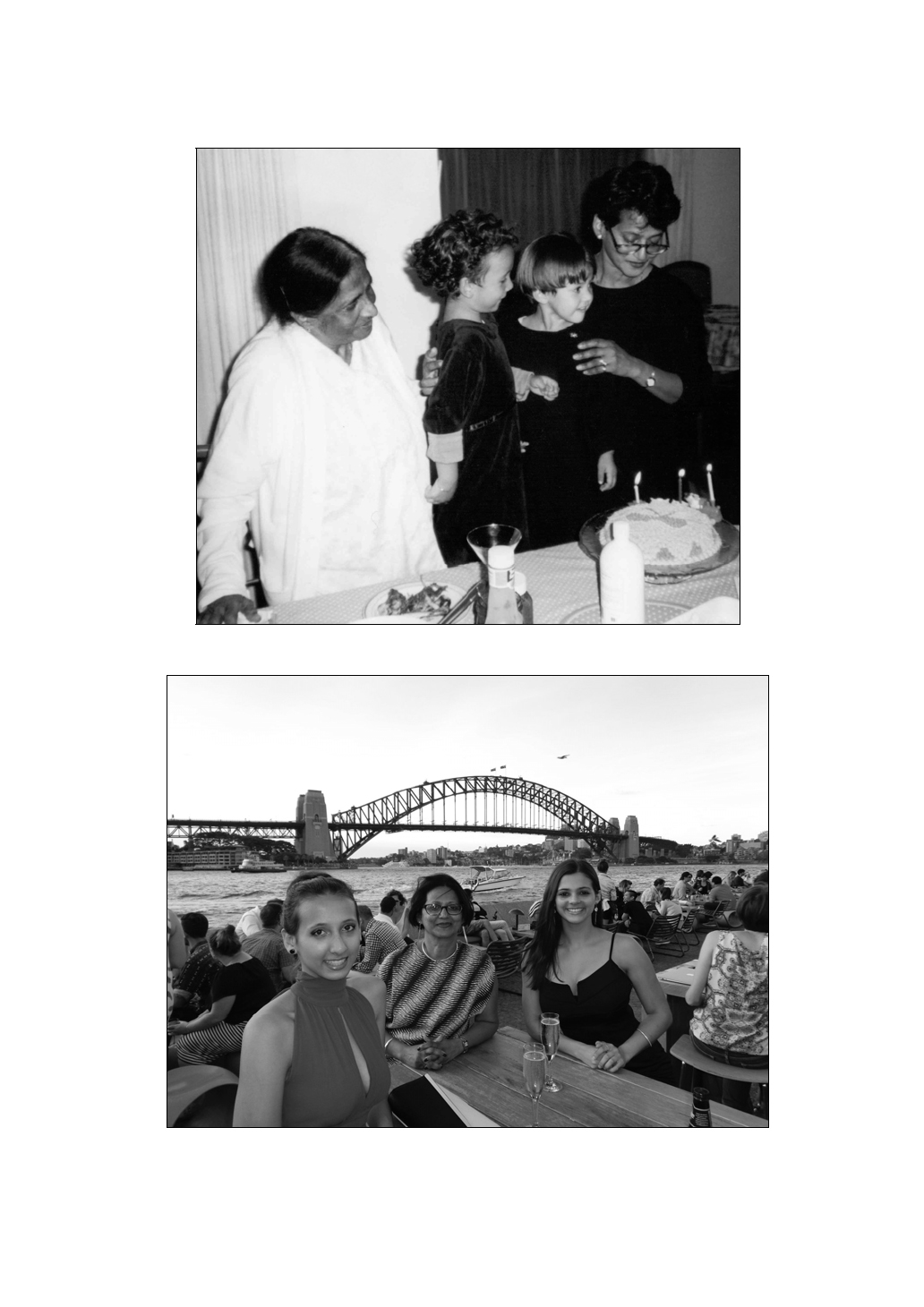Contents
Guide
Pages
ANNAPURNA
GASTRONOMIC DELIGHTS FROM MY FIJI INDIAN CHILDHOOD
Copyright NALINI NAIDU 2018
First published by Zeus Publications 2017
http://www.zeus-publications.com
P.O. Box 2554
Burleigh M.D.C.
QLD, 4220
Australia.

All Rights Reserved
No part of this book may be reproduced in any form, by photocopying or by any electronic or mechanical means, including information storage or retrieval systems, without permission in writing from both the copyright owner and the publisher of this book.
This book is a work of non-fiction.
The author asserts her moral rights
ISBN: 978-0-6481607-6-2
Cover DesignZeus Publications 2018
Dedication
To Mum, Dad, Anouschka and Nitasha, with love
Acknowledgements
To Mum, for she knew how to nourish, love and innovate. Thank you for the love of food, inspiration, succinct recollection of recipes and editorial support. Dad, appreciative of Mums cooking, loved to share her passion by inviting one and all to celebrate her creations. My children, Anouschka and Nitasha, my rocks who have stood by me, testing my experiments or whims with unflagging enthusiasm. You all make me a better person, and hopefully cook, each day.
My heartiest appreciation to Wally Kwan for allowing me the privilege of including his poem, The Master Chef and sharing many of his recipes such as chilli relish and meals over the years, an unending inspiration.
Engaging in exquisite meals and acquiring recipes from family and various friends was a bonus for this book, although there may be a few recipes where the origin is uncertain or unknown. It is an honour to have had people in my life who had wonderful culinary skills. My sincerest gratitude to:
Maha Lakshmi, my paternal aunt, who was one of the greatest and most versatile cooks. She was respectfully sought after for huge wedding banquets where her competence was unsurpassed.
Ratna Krishnan, who to this day never ceases to amaze with her novel dishes and ideas, indeed a pleasure to dine at her home. Her food expertise across cultures is phenomenal.
Margaret Venkataya for her delightful cake and biscuit recipes which were very much and continue to be part of our lives. Graciously catering to all, she has quite a repertoire of skills from baking to a variety of Indian dishes.
Sudha Chandra displayed her talents whilst entertaining our family at her home and restaurant numerous times, always loving and caring. Remarkable in her creation of an array of dishes, she has won the affection of many.
The punchy carrot pickle complementing curries is attributed to Rita Raylu, the exquisite American crunch to Dorothy and Susan Walker, the light and fluffy scones to Kara and some very inviting Fijian dishes to Tokasa Duanalesu and her sister, Vika.
My deep gratitude for the editorial assistance and constant encouragement from Anouschka Akerman, Chris Hagan, Bhagia Puran, Natalie Ritchie and Saroj Krishna all willingly assisted, applying their aptitudes. Anouschka took time out of her busy schedule to devote to my needs. Chris Hagan generously provided guidance and support in innumerable ways. Bhagias guidance with some recipes and culinary expertise was welcomed. Natalie provided immediate attention on publishing, with many suggestions. My family reminded me of some childhood dishes, with Padma Naidu reviewing my work and keeping the conversation alive. Martin Taylor provided invaluable insights into the publishing world, with admirable advice on book production.
I owe a great deal to my photographers. Kamlesh Chand spent countless hours editing and valiantly accommodated my various changes. My food has never looked better! Rikesh Krishna devoted much time with cover and kitchen gadget photographs, creating them with great finesse. Nitasha and Jan Akerman supported with photographic ideas and layout.
Thank you for the journey and belief in bringing me to this book.
I trust that I have given Fiji Indian food the recognition it deserves. In sharing a meal, we exchange conversations, forge relationships and discuss intimate matters in a trusting environment we must continue the enduring tradition vital for our wellbeing.
About the author
Nalini Naidu, originally from Fiji, attended Waikato University in New Zealand and RMIT in Australia. She has established an extensive career in Knowledge Management and Information Technology whilst pursuing her enthusiasm for cooking, with a compelling interest in cultures and their associated food.
Her interest in cooking sparked during childhood as she assisted her mother in food preparation, memories that are relived as she prepares food with her two daughters. Since then she continued to cultivate her passion encompassing various aspects of food and cookery including nutrition, creativity, entertainment and the sheer joy whilst endeavouring to experiment with new concepts and explore food from a philosophical perspective.
Having participated in the art of various cooking styles and philosophies, Nalini is a true foodie, easily inspired by ingredients of the everyday and the less familiar, a journey that will no doubt continue for life.
One cannot think well, love well, sleep well, if one has not dined well (Woolf 1929, p. 28).
Annapurna is the goddess
who blesses us with food
and is the source of all nourishment.
PREFACE
The words India or Indian are used to refer to what is present-day India, Pakistan and Bangladesh. Prior to British rule, such countries did not exist and India was comprised of states and provinces. For simplification, I have used India to include the other two countries which are included in the subcontinent. With respect to the Indian community in Fiji, I have referred to them as Fiji Indians.
Cooking in India dates back centuries and constitutes the intermingling of various nationalities. The result is a product which is often a complex influence of cultures, religion, climate and preferences. It is essential to trace the history of food and influences in India to appreciate how present-day Indian food in Fiji is presented. Fortunately, food culture is transportable. We can see that in Fiji, regional Indian food has crossed boundaries in some instances and in others remained closer to their origin. Nevertheless, a cuisine has evolved in Fiji that is quite typical of the diaspora, which includes adopting of ingredients from the local surroundings.
The contribution of the Fiji Indians to Fijis growth and development is endless, not to forget the unique cuisine that was introduced as they assimilated in their adopted country a cuisine thoroughly appreciated by all communities in Fiji.
A CELEBRATION
Food is a universal experience. For my readers, I hope this book is a cultural journey that will be rewarded with recipes, cooking tips and the history of Indian cuisine in Fiji.

